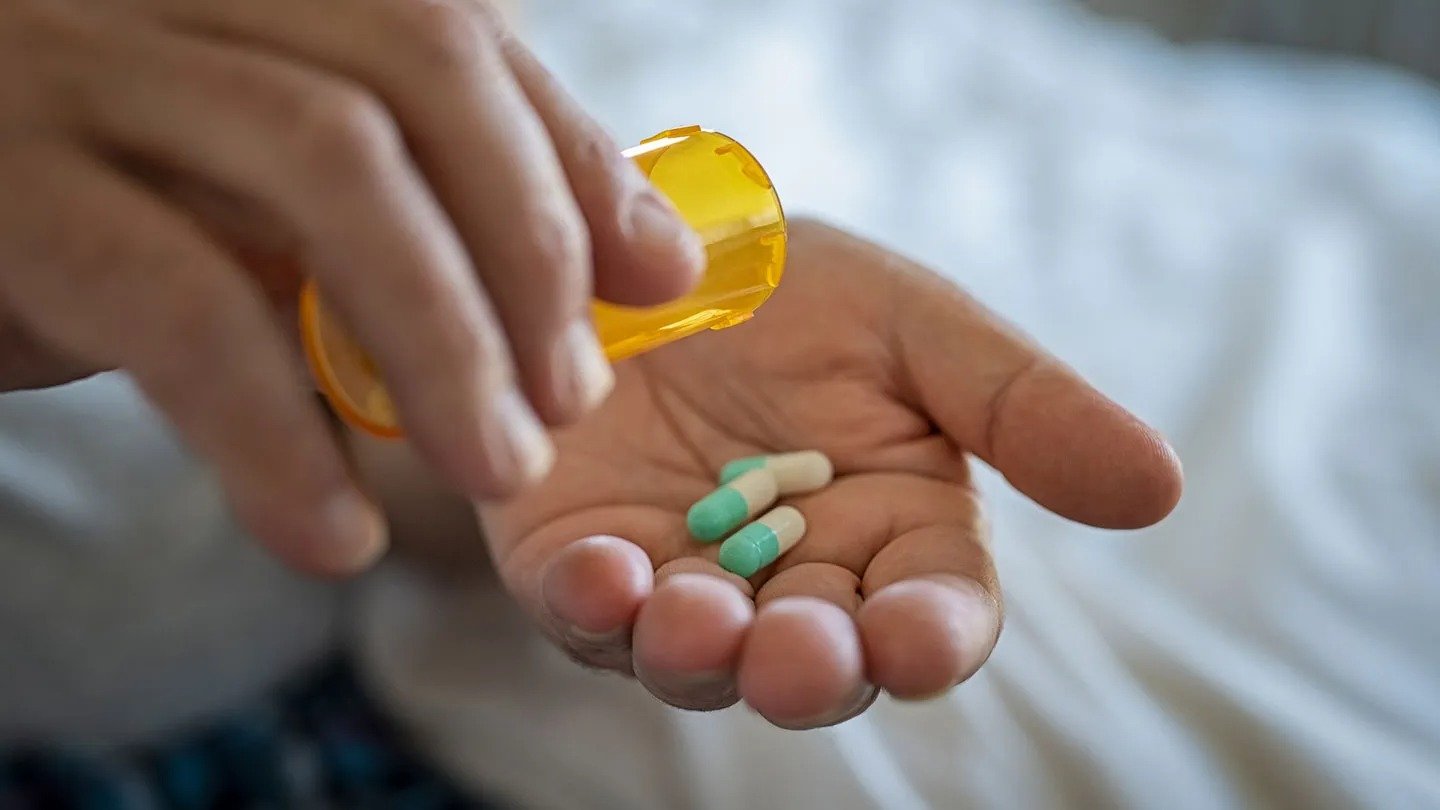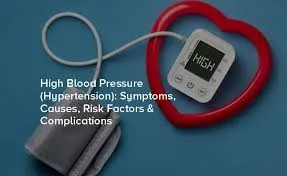Health
Anxiety Medication: Types, Uses, and Side Effects

Anxiety disorders affect millions worldwide, and medication can be an effective treatment option when combined with therapy. This guide explores the most common anxiety medications, their benefits, side effects, and key differences to help you make informed decisions with your healthcare provider.
Table of Contents
Types of Anxiety Medications
1. SSRIs (Selective Serotonin Reuptake Inhibitors)
How They Work: Increase serotonin levels in the brain to improve mood and reduce anxiety.
Common Uses: Generalized Anxiety Disorder (GAD), Panic Disorder, OCD, Social Anxiety
Examples:
- Fluoxetine (Prozac)
- Sertraline (Zoloft)
- Escitalopram (Lexapro)
✅ Pros:
- Non-addictive
- Long-term safety
- Also treats depression
❌ Cons:
- Takes 4-6 weeks to work
- May cause nausea, insomnia, or sexual dysfunction
2. SNRIs (Serotonin-Norepinephrine Reuptake Inhibitors)
How They Work: Boost serotonin and norepinephrine for better mood regulation.
Common Uses: GAD, Panic Disorder, PTSD
Examples:
- Venlafaxine (Effexor XR)
- Duloxetine (Cymbalta)
✅ Pros:
- Effective for both anxiety and chronic pain
- Longer-lasting effects
❌ Cons:
- May increase blood pressure
- Withdrawal symptoms if stopped abruptly
3. Benzodiazepines (Fast-Acting Anxiety Relievers)
How They Work: Enhance GABA (a calming neurotransmitter) for immediate relief.
Common Uses: Panic attacks, short-term anxiety relief
Examples:
- Alprazolam (Xanax)
- Lorazepam (Ativan)
- Diazepam (Valium)
✅ Pros:
- Works within 30 minutes
- Highly effective for acute anxiety
❌ Cons:
- High risk of dependence
- Can cause drowsiness, memory issues
4. Buspirone (Non-Benzodiazepine Anxiolytic)
How They Work: Affects serotonin and dopamine receptors without sedation.
Common Uses: Chronic anxiety (not for panic attacks)
✅ Pros:
- Non-addictive
- Fewer side effects than benzos
❌ Cons:
- Takes weeks to work
- Less effective for severe anxiety
5. Beta-Blockers (For Physical Anxiety Symptoms)
How They Work: Block adrenaline to reduce shaking, rapid heartbeat.
Common Uses: Performance anxiety, social phobia
Examples:
- Propranolol (Inderal)
✅ Pros:
- No mental fog
- Good for situational anxiety
❌ Cons:
- Doesn’t treat emotional anxiety
- Not for long-term use
Comparison Table: Anxiety Medications at a Glance
| Medication Type | Best For | Onset of Action | Addiction Risk | Common Side Effects |
|---|---|---|---|---|
| SSRIs | Long-term anxiety & depression | 4-6 weeks | Low | Nausea, insomnia, sexual issues |
| SNRIs | Anxiety with chronic pain | 2-4 weeks | Low | Sweating, dizziness, high BP |
| Benzodiazepines | Immediate panic relief | 15-30 mins | High | Drowsiness, dependence |
| Buspirone | Mild to moderate anxiety | 2-4 weeks | None | Dizziness, headache |
| Beta-Blockers | Physical anxiety symptoms | 30-60 mins | None | Fatigue, cold hands |
FAQ About Anxiety Medication
1. Which anxiety medication works fastest?
Benzodiazepines (Xanax, Ativan) work within 15-30 minutes but are only for short-term use due to addiction risks.
2. What’s the safest long-term anxiety medication?
SSRIs (Lexapro, Zoloft) are safest for long-term use because they’re non-addictive.
3. Can anxiety meds cause weight gain?
Some SSRIs (like Paroxetine) and SNRIs may lead to weight gain, while others (like Fluoxetine) are weight-neutral.
4. How do I know if I need anxiety medication?
If anxiety interferes with daily life (sleep, work, relationships), consult a doctor. Therapy + meds is often the best approach.
5. Can I drink alcohol with anxiety meds?
Avoid alcohol with benzodiazepines (dangerous sedation) and check with your doctor for SSRIs/SNRIs.
6. Do anxiety meds change your personality?
No, they help regulate mood—they don’t alter personality. You’ll still feel like yourself, just less overwhelmed.
7. What’s the best non-addictive anxiety medication?
Buspirone and SSRIs are the best non-habit-forming options.
8. How long does it take for anxiety meds to work?
- SSRIs/SNRIs: 2-6 weeks
- Benzos: Minutes to hours
- Buspirone: 2-4 weeks
Health
Cialis (Tadalafil) vs. Vagira Tablet: Uses, Dosage & Side Effects

When it comes to treating erectile dysfunction (ED) and other related conditions, Cialis (Tadalafil) and Vagira are two commonly prescribed medications. While both are used to improve sexual performance, they have different compositions, mechanisms, and side effects.
Table of Contents
What is Cialis (Tadalafil)?
Cialis, containing the active ingredient Tadalafil, is an FDA-approved PDE5 inhibitor that enhances blood flow to the penis. It’s clinically proven for:
- Erectile Dysfunction (ED) treatment
- Benign Prostatic Hyperplasia (BPH) management
- Pulmonary Arterial Hypertension (PAH) therapy
Key Advantages of Cialis
✔️ 36-hour effectiveness – longest duration among ED medications
✔️ Flexible dosing options – from 2.5mg daily to 20mg as needed
✔️ Proven clinical results – with extensive safety data
✔️ Multiple therapeutic uses – beyond just ED treatment
Clinical studies show helps 70-80% of men with ED achieve satisfactory erections.
What is Vagira Tablet?
Vagira represents an Ayurvedic approach to sexual wellness, combining traditional herbs like:
- Ashwagandha (stress reduction)
- Shilajit (mineral-rich stamina booster)
- Saffron (libido enhancement)
- Shatavari (hormonal balance)
Potential Benefits of Vagira
✔️ Natural formulation – may appeal to those avoiding pharmaceuticals
✔️ Holistic approach – targets overall sexual health, not just ED
✔️ Fewer side effects – compared to prescription options
However, no clinical trials verify Vagira’s effectiveness for ED, and quality varies between manufacturers.
Detailed Comparison: Cialis vs. Vagira
| Factor | Cialis (Tadalafil) | Vagira Tablet |
|---|---|---|
| Drug Classification | Prescription PDE5 inhibitor | Herbal dietary supplement |
| Mechanism | Blocks PDE5 enzyme → increases cGMP → improves blood flow | May support testosterone production and reduce stress |
| Effectiveness | Proven in clinical trials (70-80% success) | Anecdotal evidence only |
| Onset Time | 30-60 minutes | Gradual effects over weeks |
| Duration | Up to 36 hours | Temporary effects |
| Standard Dosage | 10-20mg as needed; 2.5-5mg daily | 1-2 tablets daily |
| FDA Approval | Yes | No |
| Price Range | $$$ ($50-$400/month) | $ ($20-$50/month) |
| Drug Interactions | Numerous (especially nitrates) | Few documented |
| Best For | Reliable ED treatment | General sexual wellness support |
Dosage Guidelines Explained
Cialis Dosing Protocol
- As-needed therapy: Start with 10mg 30-60 minutes before sex (max 20mg)
- Daily low-dose: 2.5mg or 5mg for continuous readiness (ideal for BPH patients)
- PAH treatment: 40mg once daily (under strict medical supervision)
Pro Tip: Taking Cialis with high-fat meals may delay absorption by 1 hour.
Vagira Usage Recommendations
- Typically 1 tablet twice daily with meals
- Requires consistent use for 4-8 weeks for noticeable effects
- Best paired with healthy lifestyle changes for optimal results
Side Effect Profiles Compared
Cialis Side Effects (20-30% users)
- Common: Headache (15%), indigestion (10%), back pain (6%)
- Less common: Muscle aches, nasal congestion, dizziness
- Rare but serious: Priapism, sudden hearing/vision loss (seek immediate care)
Vagira Adverse Reactions (<5% users)
- Possible: Mild nausea, stomach discomfort
- Rare: Allergic reactions to herbal components
- Note: Quality control issues with some herbal supplements
Safety Consideration: Cialis requires medical screening for heart conditions, while Vagira lacks standardized safety data.
FAQ About Cialis (Tadalafil) vs. Vagira
Q. How does Cialis achieve 36-hour effectiveness?
A. Tadalafil’s unique molecular structure allows prolonged PDE5 inhibition compared to sildenafil (Viagra).
Q. Can Vagira treat psychological ED?
A. Its adaptogenic herbs may help stress-related ED, but results vary significantly.
Q. What makes Cialis better for BPH?
A. It relaxes prostate and bladder muscles via PDE5 inhibition, improving urinary symptoms.
Q. Are there natural alternatives as potent as Cialiis?
A. No herbal product matches PDE5 inhibitors’ efficacy for organic ED. Some combine L-arginine with herbs for mild benefits.
Q. Why does Cialis cause back pain?
A. PDE5 inhibition affects spinal muscles in some users, typically resolving within 48 hours.
Q. How to identify quality Vagira products?
A. Look for GMP-certified manufacturers with standardized herbal extracts.
Q. Can young men use Cialis for performance anxiety?
A. Yes, but psychological ED often responds better to counseling than medications.
Q. Does Vagira boost testosterone?
A. Some ingredients may support healthy levels, but not to therapeutic degrees.
Q. What’s the safest Cialis dosage for seniors?
A. Typically starts at 5mg due to slower drug metabolism in older adults.
Q. Can Vegira prevent ED?
A. Its antioxidants may support vascular health, but won’t prevent organic ED like PDE5 inhibitors can treat it.
Making the Right Choice: Expert Recommendations
When to Choose Cialis
- Diagnosed ED requiring reliable treatment
- Concurrent BPH symptoms
- Planned sexual activity (weekend trips, etc.)
- Under medical supervision
When Vagira Might Suffice
- Mild age-related libido decline
- Stress-related sexual dysfunction
- Preference for natural approaches
- As adjunct to lifestyle changes
Clinical Insight: Studies show 60% of ED cases have vascular causes best treated with PDE5 inhibitors like Cialis, while psychological factors may respond to holistic approaches.
Health
Heart Attack से पहले मिलते हैं ये 5 चेतावनी संकेत – रिसर्च में बड़ा खुलासा

Heart Attack: दिल यानी हृदय हमारे शरीर का सबसे महत्वपूर्ण अंग है। लेकिन आजकल की बदलती जीवनशैली, तनाव, और खराब खानपान के चलते दिल की बीमारियाँ लगातार बढ़ रही हैं। विश्व स्वास्थ्य संगठन (WHO) के अनुसार, दुनिया भर में हर साल करोड़ों लोग हार्ट अटैक की वजह से अपनी जान गंवाते हैं। ऐसे में हाल ही में आई एक रिसर्च ने चौंकाने वाला खुलासा किया है – आपकी हार्टबीट यानी दिल की धड़कन, हार्ट अटैक की चेतावनी पहले ही दे सकती है।
Table of Contents
Heart Attack यह रिसर्च क्यों है महत्वपूर्ण?
इस अध्ययन में वैज्ञानिकों ने हजारों मरीजों की हार्टबीट रिकॉर्डिंग (ECG डेटा) का विश्लेषण किया और पाया कि दिल की धड़कन का अनियमित पैटर्न, विशेष रूप से वेरिएबिलिटी (HRV – Heart Rate Variability), किसी आने वाले कार्डियक अरेस्ट या हार्ट अटैक का संकेत दे सकता है। यह रिसर्च न केवल मेडिकल साइंस के लिए एक नई दिशा है, बल्कि आम लोगों के लिए जीवन रक्षक भी हो सकती है।
Heartbeat और Heart Attack के बीच संबंध:
हार्टबीट का पैटर्न हमारे शरीर के ऑटोनॉमिक नर्वस सिस्टम पर निर्भर करता है। जब यह सिस्टम ठीक से काम नहीं करता, तो दिल की धड़कन अनियमित हो जाती है। यह असामान्यता स्ट्रेस, हाई ब्लड प्रेशर, डायबिटीज, मोटापा या किसी गंभीर हृदय रोग का संकेत हो सकता है।
हार्ट रेट वेरिएबिलिटी (HRV) कम होना हृदय के लिए खतरे की घंटी है।
बहुत तेज़ या बहुत धीमी हार्टबीट हार्ट अटैक का रिस्क बढ़ा सकती है।
हृदय की धड़कन में अचानक गिरावट या बढ़ोतरी भी घातक साबित हो सकती है।
रिसर्च में क्या कहा गया?
अमेरिका के एक प्रमुख मेडिकल यूनिवर्सिटी में हुई स्टडी में 30,000 से अधिक मरीजों के ECG डेटा को AI (Artificial Intelligence) और मशीन लर्निंग की मदद से विश्लेषित किया गया। अध्ययन में पाया गया कि जिन मरीजों की हार्टबीट में असामान्यता पाई गई, उनमें हार्ट अटैक की संभावना 7 से 10 गुना अधिक थी। यह अध्ययन इस बात की ओर इशारा करता है कि ECG और AI आधारित एनालिसिस से भविष्य में हार्ट अटैक की भविष्यवाणी करना संभव है।
किन्हें है सबसे ज़्यादा Heart Attack से खतरा?
हाई ब्लड प्रेशर वाले मरीजों को
डायबिटीज़ पीड़ितों को
जिनके परिवार में हार्ट अटैक का इतिहास है
मोटापे से ग्रस्त लोग
धूम्रपान और शराब का सेवन करने वाले
40 साल से ऊपर के पुरुष और महिलाएं
Heartbeat से खतरे को कैसे पहचानें?
कुछ सामान्य लक्षण जिनसे आप समझ सकते हैं कि आपकी हार्टबीट खतरे का संकेत दे रही है:
सीने में हल्का-सा दबाव या दर्द महसूस होना
सांस लेने में तकलीफ
दिल की धड़कन बहुत तेज़ या बहुत धीमी होना
थकान महसूस होना
चक्कर आना या बेहोशी जैसा लगना
Hear tattck से बचाव कैसे करें?
नियमित ECG करवाएं:
यदि आपकी उम्र 40 साल से ऊपर है या आपको कोई कार्डियक समस्या है तो हर 6-12 महीने में ECG कराना जरूरी है।
स्मार्टवॉच और फिटनेस बैंड्स का इस्तेमाल:
आजकल उपलब्ध स्मार्ट डिवाइसेज़ आपकी हार्टबीट को रीयल टाइम ट्रैक कर सकते हैं।
स्वस्थ जीवनशैली अपनाएं:
योग, ध्यान, व्यायाम, संतुलित आहार और पर्याप्त नींद हृदय स्वास्थ्य को बेहतर बनाते हैं।
स्ट्रेस मैनेजमेंट:
अत्यधिक तनाव भी दिल की बीमारियों का मुख्य कारण है। मेडिटेशन और गहरी साँसें लेने का अभ्यास फायदेमंद होता है।
मेडिकल जांच कराना न भूलें:
यदि आपको उपरोक्त लक्षण महसूस हों तो तुरंत डॉक्टर से संपर्क करें और आवश्यक जांच कराएं।
हार्ट हेल्थ को मॉनिटर करने के टूल्स:
ECG मशीन
HRV मॉनिटरिंग डिवाइसेज़
स्मार्टवॉच (जैसे Apple Watch, Fitbit, Samsung Health)
ब्लड प्रेशर मॉनिटर
स्टेस-ट्रैकिंग ऐप्स
निष्कर्ष:
दिल की धड़कन अब सिर्फ एक सामान्य बॉडी फंक्शन नहीं, बल्कि भविष्य की संभावित मेडिकल चेतावनी बन चुकी है। इस नई रिसर्च ने हमें एक ऐसा उपकरण दे दिया है जिससे हम समय रहते हार्ट अटैक जैसे गंभीर खतरे को भांप सकते हैं। अगर हम अपनी हार्टबीट को गंभीरता से लेना शुरू करें, तो लाखों लोगों की जान बचाई जा सकती है।
📌 अंतिम सलाह:
अगर आपकी हार्टबीट में बदलाव महसूस हो रहा है या आपने हाल ही में असामान्य थकान या चक्कर जैसे लक्षण देखे हैं, तो इसे नजरअंदाज न करें। समय पर जांच और सावधानी से आप एक स्वस्थ जीवन की दिशा में कदम बढ़ा सकते हैं।
Health
High blood pressure, fatty liver and obesity: जानिए क्यों ज़रूरी है आपके डेली डाइट का नेचुरल रीस्ट्रक्चर

High blood pressure, fatty liver and obesity: आज के आधुनिक दौर में जहां तकनीक ने हमारी जिंदगी को आसान बनाया है, वहीं हमारी जीवनशैली और खानपान ने कई गंभीर बीमारियों को जन्म दिया है। हाई ब्लड प्रेशर (उच्च रक्तचाप), फैटी लिवर और मोटापा (ओबेसिटी) जैसी बीमारियाँ आज आम हो गई हैं। इन सभी के पीछे सबसे बड़ा कारण है — हमारी डेली डाइट और अनहेल्दी लाइफस्टाइल।
लेकिन क्या कभी आपने सोचा है कि अगर हम अपने खानपान को प्राकृतिक (Natural) रूप में ढाल लें, तो क्या इन बीमारियों से बचा जा सकता है? आइए जानते हैं कि कैसे एक नेचुरल डायट रीस्ट्रक्चर हमारे जीवन में चमत्कारी बदलाव ला सकता है।
Table of Contents
🔴 1. high blood pressure का असली कारण: प्रोसेस्ड फूड और नमक
हाई ब्लड प्रेशर को ‘साइलेंट किलर’ कहा जाता है क्योंकि यह धीरे-धीरे आपके शरीर को नुकसान पहुंचाता है। इसके मुख्य कारणों में हैं:
- अत्यधिक नमक का सेवन
- प्रोसेस्ड और पैकेज्ड फूड
- तनाव और नींद की कमी
- शारीरिक गतिविधि का अभाव
➡ समाधान: अपने डाइट से प्रोसेस्ड फूड, अतिरिक्त नमक, और चीनी को निकालिए। उसके स्थान पर ताजे फल, हरी सब्जियाँ और होल ग्रेन्स को शामिल करें। तुलसी, लहसुन, और मेथी जैसी आयुर्वेदिक जड़ी-बूटियाँ ब्लड प्रेशर को नियंत्रित करने में मदद करती हैं।
🟠 2. fatty liver: लिवर की चुपचाप बिगड़ती सेहत
फैटी लिवर की समस्या तब होती है जब लिवर में वसा (Fat) का जमाव हो जाता है। यह दो प्रकार का हो सकता है:
- Non-alcoholic fatty liver disease (NAFLD)
- Alcoholic fatty liver disease
ज्यादातर मामलों में NAFLD खराब डाइट और मोटापे के कारण होता है। अगर समय रहते ध्यान न दिया जाए तो यह लिवर सिरोसिस या कैंसर का कारण भी बन सकता है।
➡ समाधान: फैटी लिवर को रिवर्स किया जा सकता है एक हेल्दी, संतुलित और नेचुरल डाइट से। हल्दी (turmeric), ग्रीन टी, भिंडी, और करेले जैसे फूड्स लिवर की सफाई में सहायक होते हैं। व्रत या इंटरमिटेंट फास्टिंग भी लिवर डिटॉक्स के लिए फायदेमंद मानी जाती है।
🟡 3. obesity: एक जीवनशैली की बीमारी
मोटापा न सिर्फ शरीर की बनावट को प्रभावित करता है बल्कि यह हृदय रोग, डायबिटीज, थायरॉइड और यहां तक कि कैंसर जैसी बीमारियों का भी कारण बन सकता है। भारत में अब हर 3 में से 1 व्यक्ति ओवरवेट या मोटापे की श्रेणी में आ चुका है।
➡ समाधान: मोटापे से निपटने का सबसे प्रभावी तरीका है डेली डाइट का नेचुरल रीस्ट्रक्चर। अपने खाने में 80% प्राकृतिक तत्वों को शामिल करें — जैसे फल, सब्जियाँ, अंकुरित अनाज, नारियल पानी, छाछ आदि।
🟢 4. नेचुरल डायट रीस्ट्रक्चर क्या है?
यह कोई डाइटिंग नहीं है, बल्कि एक स्थायी जीवनशैली का हिस्सा है। इसमें आप प्रोसेस्ड, केमिकल-युक्त और कृत्रिम खाद्य पदार्थों को कम करके प्राकृतिक, ताजे और मौसमी खाद्य पदार्थों को प्राथमिकता देते हैं।
नेचुरल डायट रीस्ट्रक्चर के कुछ मुख्य तत्व:
- खाना पकाते समय अधिक तेल या मसाले न डालें
- ज्यादा से ज्यादा सलाद, फल और कच्ची सब्जियाँ खाएं
- नियमित अंतराल पर खाना खाएं, भूखा न रहें
- माइंडफुल ईटिंग को अपनाएं (TV या मोबाइल देखते हुए न खाएं)
🔵 5. फाइबर, विटामिन और मिनरल्स की भूमिका
प्राकृतिक भोजन में भरपूर मात्रा में फाइबर, विटामिन और मिनरल्स होते हैं जो पाचन को सही रखते हैं, ब्लड शुगर और ब्लड प्रेशर को नियंत्रित करते हैं, और फैट को बर्न करने में सहायता करते हैं।
- हरी पत्तेदार सब्जियाँ — आयरन और फाइबर का स्रोत
- फल — विटामिन C, A और एंटीऑक्सीडेंट से भरपूर
- साबुत अनाज — जैसे ओट्स, ब्राउन राइस, राजगीरा, कुट्टू
- मेवे — बादाम, अखरोट और चिया सीड्स से हेल्दी फैट मिलता है
🟣 6. दिनचर्या में बदलाव लाएं
केवल आहार में बदलाव काफी नहीं है, बल्कि जीवनशैली में भी सकारात्मक बदलाव आवश्यक है:
- सुबह जल्दी उठें और सूरज की रोशनी में वॉक करें
- योग और प्राणायाम को दिनचर्या में शामिल करें
- 7–8 घंटे की नींद ज़रूरी है
- पानी पर्याप्त मात्रा में पिएं (दिन में 8–10 गिलास)
🟤 निष्कर्ष: बीमारियाँ नहीं, स्वस्थ आदतें अपनाइए
हाई ब्लड प्रेशर, फैटी लिवर और मोटापा जैसी बीमारियाँ आधुनिक जीवनशैली का परिणाम हैं। इन्हें रोकना और कंट्रोल करना पूरी तरह संभव है, अगर हम अपनी डेली डाइट और जीवनशैली में नेचुरल रीस्ट्रक्चर लाएं। एक स्वस्थ शरीर और लंबी उम्र की नींव हमारे थाली से ही शुरू होती है।
-
Trending3 months ago
Viral Video “Andini Permata dan Adeknya”: Facts, Impact & Legal Analysis
-
Trending3 months ago
Izza Fadhila Viral Video: 13-Minute Blunder Scandal Explained
-
Trending2 months ago
Erika Putri 8 Minute Viral Video: Real or Fake
-
Trending2 months ago
Video Ibu dan Anak Lelaki Viral Baju Biru: Uncovering the Meaning Behind Laughter and Controversy
-
Trending3 months ago
Breckie Hill Video Leak: Privacy, Scandal & the Dark Side of Viral Fame
-
Trending2 months ago
Lucky Rajor MMS Leak 2025: Viral Video Scandal, Privacy Issues & Social Media Buzz
-
Trending3 months ago
Sumbal Malik Leaked Video Scandal – Fact or Fake?
-
Trending2 months ago
Yandex Ru Video Viral Terbaru 2025 – Best Indonesia’s Favorites












